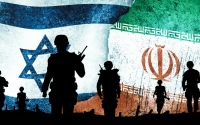 The first trials could start very soon |
The Pentagon has sent the draft of a new manual for trying detainees at Guantanamo Bay to Congress.
Judges would have wide latitude to decide what evidence may be presented.
The draft comes in the wake of last December's legislation establishing military commissions to try what the US calls enemy combatants.
A Pentagon official said the first trials could start soon.
"I am satisfied that these rules provide rules and a basis on which you can conduct a fair trial," said Brig Gen Thomas Hemingway, the Pentagon's legal adviser on the tribunals.
Up to 80 of the around 400 detainees kept at Guantanamo will face the military commissions.
Military lawyers representing them said they are concerned there are not enough protections built into the trial process.
The Pentagon-appointed lawyer for Australian detainee David Hicks said he is concerned that he will not be able to see classified evidence against his client.
"Actually things are worse under this new system," Maj Michael Mori told Associated Press news agency.
'Level playing field'
Military lawyers representing detainees are worried that statements from other detainees could be used to incriminate defendants and there would be no way of knowing if the information was extracted under torture, says the BBC Adam Brookes in Washington.
But a senior lawyer for the Pentagon said the trials would be just and fair and detainees would be given "all the judicial guarantees which are recognised as indispensable by civilised people".
"Certainly, both sides having the opportunity to admit hearsay levels the playing field," said Dan Dell'Orto.
"And the only evidence that will be submitted before the members ultimately will be evidence that the judge determines to be reliable and probative," he added.
Among others they include:
No evidence obtained under torture is to be admissible
Evidence obtained by coercion before December 2005 will be admitted if a judge decides so Classified information will be submitted at a judge's discretion and the detainees will be given access to itThe military commissions have been controversial since the beginning, says our correspondent.
Defence lawyers said they were secretive and unfair - and the US Supreme Court agreed, putting the whole process on hold until Congress passed a new law last year.






